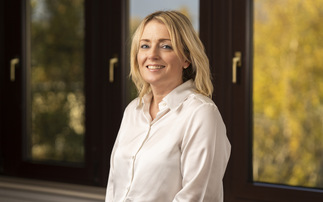As we tentatively emerge from lockdown, Adrian Boulding looks at the five key themes advisers may wish to discuss with their clients in the 'new normal'
Every day we hear that the numbers vaccinated have increased, both here and around the world. These numbers have set us on a roadmap out of lockdown with the PM's latest announcement just yesterday.
Yet it is dawning on us all that the early analogy from politicians that fighting Covid-19 is like fighting a war was fundamentally flawed. In the last century, we fought two world wars, conflicts in the Middle East and a naval, and an air and land campaign in the South Atlantic. Those wars all had a definite end when the enemy was beaten, and weapons were laid down.
Scientists are now explaining that Covid will not be like that. Although very worthwhile, the vaccines do not provide 100% protection. Those that have developed immunity, whether through the vaccine or through having suffered and survived Covid, find that their antibody levels fall away with time. And the virus has already demonstrated its power to evolve, with powerful new variants appearing in Kent, South Africa and Brazil.
So, for financial advisers meeting clients, especially elderly clients that have been vaccinated, how will they handle conversations as they inevitably turn to what life will be like in the post-Covid ‘new normal’?
Let me start with two basic assumptions:
The first is that some of the restrictions will last longer than we had anticipated when they were introduced amidst strong public support last Spring. In the middle of the last century, sweets remained rationed until 1953 and meat for a year longer than that. Kids born just after hostilities against Nazi Germany finished, spent half their childhoods with sweets and sausages in strictly limited supply!
My second assumption is that for decades to come we will endure further waves of Covid transmission, as new variants emerge around the world. Their rapid spread will have to be curtailed by yet more periods of lockdown.
My hope though is that a combination of faster vaccine development and a better understanding of the early periods of transmission will mean that future lockdowns will be short and sharp rather than prolonged.
Against this background, I came up with five priority messages financial advisers could introduce into client-facing discussions on preparing for this new normal:
- Inheritance Tax: Covid has been a reminder that the Grim Reaper can call suddenly with little warning. So, waiting seven years for a ‘potentially exempt transfer’ to reach its IHT-free date seems a poor plan. Those skilled at creating and administering trusts will find their services in much greater demand.
- Annuities: Covid deaths have been mostly in the over 80 age group, but that doesn’t mean most over 80’s have died from covid! Pensioners that have survived, whilst seeing losses amongst their peer group, will now be doubly determined to take a responsible approach to financing a long and enjoyable old age. An annuity, viewed as one element of a retirement income portfolio, provides the guarantees and stability that underpin planning for advanced old age. And when annuity providers see that future Covid waves are an enduring pattern, revised mortality predictions will feed through to more attractive annuity rates.
- Investments: Robustness will become a feature that fund managers will be checking for when picking companies to invest in. Measured in terms of the ability of a company to weather random periods of business interruption, such as repeat lockdowns and new, as yet un-thought of, restrictions. A robustness filter could become as important as ESG, not only to protect the investor but also to save the wider stakeholder community from the damaging effects of a business collapsing. High levels of gearing will be frowned upon and share buy-backs will become abhorrent.
- Inter-generational repayment: A curious and I’m sure unintended effect of lockdown has been that the old, who were most at risk, lost the least in financial terms as their pensions continued on un-affected. Whilst younger generations, who generally suffer the least if they catch Covid, have borne the brunt of the financial hardships of life on furlough, coupled with the disruptive effects of being saddled with home-schooling tasks. Many have lost their jobs or seen earnings fall dramatically.
Their stoic acceptance, encapsulated by photos of the young key workers delivering healthcare and Amazon parcels through the pandemic, deserves reward. Using a cash-flow modelling tool can quickly expose cash and realisable assets that could painlessly be transferred to younger relatives now rather than being left in a will.
5. Housing: I am fortunate to live in an area of mature four and five bedroom houses, and I’m amazed at how many are occupied by one or two elderly people, that had once raised a family there which has long since flown the nest. It’s now 10 years since the Intergenerational Foundation exposed that Britain’s elderly ‘house blockers’ were hoarding 25 million surplus bedrooms. A rapidly increasing trend of single person widow/ widower households rattling around in over-sized accommodation represents a massive problem for future generations trying to find an affordable home of their own.
I fear that equity-release plans, which risk locking the elderly into their existing houses if prices fall, will be declared the next mis-selling scandal. It may be better to assist clients with downsizing and passing the proceeds to the next generation now.
Depending on your client mix, there may well be other priorities for those post-Covid financial planning discussions. But whatever needs you choose to address, an important first step will be to banish any notion of ‘getting back to normal’.
We are witness to a global and seismic change in our lifestyles. Those that recognise this and adapt their financial plans quickly will fare much better than those who cling to past notions with ostrich-like attitudes.
A good financial adviser will be the catalyst that spurs clients into adaptable rather than obdurate behaviours in the post-Covid new normal.
Adrian Boulding is director of retirement strategy at Dunstan Thomas













